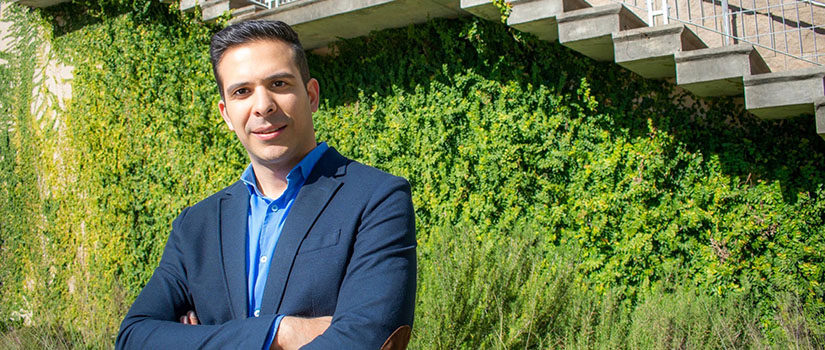Civil and Environmental Engineering Assistant Professor Erfan Goharian has received a National Science Foundation (NSF) CAREER Award, a prestigious honor for junior faculty, to study the use of artificial intelligence (AI) and novel technologies in flood prediction and modeling. His work will be used to advance scientific understanding of urban and coastal flooding, establish a new generation of intelligent flood early warning systems and smart flood control infrastructure, and educate the next generation of AI-empowered civil engineers and scientists.
Approximately 20% of eligible applicants in their initial or subsequent tenure track or tenure-track-equivalent roles are selected for NSF CAREER funding. Given the program's intense competition, applicants must exhibit exceptional proficiency in advancing research and education within their respective positions.
Goharian’s five-year project, “Harnessing Heterogeneous Sources of Data and Artificial Intelligence for Informed Flood Management,” will start on October 1 and be funded for just over $520,000 by the NSF’s Division of Civil, Mechanical and Manufacturing Innovation. As principal investigator, Goharian will use novel AI and image processing tools at different stages of flood management: data acquisition, flood detection, monitoring, simulation and forecasting.
According to Goharian, utilizing AI for water resources has received little attention due to several factors. Developing accurate AI models requires large amounts of high-quality data, which may not always be readily available in the water engineering field. Costs and expertise are other challenges in adopting AI in water engineering.
But the potential for AI to contribute to water engineering solutions is expected to increase thanks to technological advances and an increase in available data. “Over the next five years, this project aims to solve these issues and use AI and heterogeneous sources of information to enhance flood management,” Goharian says.
The project will address gaps in flood data availability and current flood modeling by using heterogeneous data sources, such as ground-based images and videos taken by traffic cameras, smartphones and drones, to provide real-time data and visual information. For example, in many neighborhoods and communities, cameras are already in place for traffic monitoring and surveillance. The data will be harnessed to develop an early warning system for flooding by using image processing to detect the presence of water.
By adding and integrating machine learning (ML) components into traditional flood models, more accurate and timely predictions can be made to transform existing flood infrastructure into an active flood control system.
“Traditional and complex numerical models take time to run,” Goharian says. “But we don’t want model prediction after a flood event. By using real-time data and surrogating traditional models with ML models, we can run the models continuously, faster, and improve our predictions.”
Each NSF CAREER Award project must integrate research, education and outreach. Goharian plans to train the next generation of AI-enabled engineers and scientists, fostering flood-aware communities and informing decision-makers. The project will use a looped learning framework consisting of flood modeling, planning and response, behavioral analysis, and virtual reality gameplay. For example, through virtual reality gameplay, community stakeholders can visualize Goharian’s flood models and determine how to react. Researchers will learn from their behavior patterns and determine how to adjust infrastructure design.
“I am particularly excited about Dr. Goharian's CAREER grant because it uses the latest type of technology, including artificial intelligence, to develop methods that can help us mitigate the risks associated with flooding and adapt to climate change,” says Department of Civil and Environmental Engineering Chair Juan Caicedo. “This is very important for a state like South Carolina. His research also incorporates very exciting educational components to train the next generation of engineers and scientists.”
Goharian aims that his research will ultimately be used by emergency managers and first responders to make better informed decisions regarding flood control, while supporting a new generation of flood infrastructure. Current infrastructure, including gates, dams, levees and detention ponds, was designed as passive flood control systems, but Goharian’s research plans to incorporate real-time data for active flood control infrastructure.
“For example, if we can see the potential for flooding on Main Street [in Columbia] in real-time, this data will tell us if we need to open a gate to prevent flooding or detect and monitor flooding to close roads faster and reroute traffic,” Goharian says. “It first works as an early warning system and then helps active control of flood infrastructure rather than after-the-fact planning.”
Goharian is an assistant professor of civil and environmental engineering in the College of Engineering and Computing. His research focuses on water resources systems analysis and integrated management of water resources.
